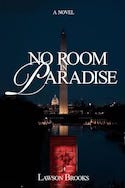Blending Healing Traditions for Better Health: An Interview with Ronald Lynch, MD MPH
As we age, maintaining our health and well-being becomes an ever-evolving challenge. While traditional medicine offers scientifically proven treatments and interventions, homeopathic remedies have long been used to support the body’s natural ability to heal. But how can these two seemingly different approaches work together to optimize health outcomes for older adults?
To explore this question, I spoke with Dr. Ronald Lynch, a seasoned practitioner with expertise in both traditional and homeopathic medicine. In this conversation, Dr. Lynch shares insights on how older adults can benefit from an integrative approach, discusses common misconceptions about homeopathy, and offers practical tips for using these complementary strategies to live healthier, more vibrant lives.
Ronald Lynch: I’m pleased to share my firsthand experiences in both traditional allopathic medicine and complementary and alternative medicine (CAM). Since 1999, I have practiced Integrative Medicine, a field championed by Dr. Andrew Weil, which blends the best of conventional medical care with the most effective complementary therapies and holistic philosophies.
In the early 1990s, after completing a traditional medical education at Oakwood University (B.S.), Howard University (M.S.), and the University of Maryland Medical School, I pursued a family practice residency at AdventHealth in Orlando, Florida. Soon after, I partnered with a diverse group of practitioners, including a chiropractor, an Austrian naturopath renowned for biofeedback diagnostics, an acupuncturist from Beijing, and a colon therapist—all working together under one roof. Our facility even housed a $60,000 natural pharmacy, offering a wide range of holistic treatments.
As the representative of conventional medicine, this experience introduced me to the tools and techniques of other healing modalities, broadening my perspective on health and wellness. I quickly realized that there are many effective pathways to achieving optimal health, each offering unique benefits to patients.
Lawson Brooks: Can you explain the core principles behind both traditional and homeopathic medicine, and how they can work together to support healthy aging in older adults?
Ronald Lynch: Modern medicine focuses primarily on disease management rather than root causes, relying heavily on pharmacological interventions that were never designed to resolve chronic conditions. Physicians often lack the time to discuss lifestyle modifications, preventive care, or nutritional support, and standard lab work remains fairly basic, covering only routine metrics like blood counts, lipid levels, and organ function. While allopathic medicine excels in diagnostics, emergency care, and surgical expertise, its reliance on prescription drugs is concerning—especially in the U.S., where direct-to-consumer pharmaceutical advertising drives demand and inflates costs. This system prioritizes profit over prevention, contributing to medication-related morbidity and mortality.
Integrative medicine, by contrast, emphasizes the body’s natural healing abilities and considers the interplay of mind, body, spirit, and environment in overall health. It takes a more holistic approach, asking deeper questions about lifestyle, habits, and environmental exposures while fostering a collaborative doctor-patient relationship. Treatment options may include acupuncture, IV nutrients, therapeutic sound or light frequencies, and movement practices like Tai Chi. Integrative practitioners also promote plant-based nutrition and study longevity trends, such as those in the "Blue Zones," where people live well beyond 100. The ideal approach to aging combines both conventional and integrative medicine—using traditional doctors for urgent care and serious conditions while leveraging integrative practices for prevention and long-term wellness.
Lawson Brooks: What are some of the most common misconceptions about homeopathic medicine, and how do you address skepticism among patients who are more familiar with traditional medical practices?
Ronald Lynch: Many misconceptions about integrative and homeopathic medicine stem from assumptions about poor regulation, lack of effectiveness, and limited scientific research. Some believe that holistic approaches automatically lack credibility, but many natural therapies—such as acupuncture, mindfulness, chiropractic care, and energy-based treatments (light, sound, and frequencies)—are both safe and effective. While it's true that some alternative remedies require further study, dismissing them outright ignores their benefits.
Skepticism is understandable, as not all natural treatments are equally effective, and proper vetting is essential. However, it’s worth noting that medical errors—including those occurring in hospitals—rank as the third or fourth leading cause of death in the U.S., contributing to approximately 250,000 deaths annually. This reality underscores the need for a more open-minded approach that evaluates all treatment options based on safety and efficacy rather than preconceived biases.
Lawson Brooks: What proactive steps can older adults take using a blend of traditional and homeopathic approaches to maintain mobility, cognitive function, and overall well-being as they age?
Ronald Lynch: Older adults can take proactive steps to blend traditional and integrative approaches for healthy aging. A plant-based diet with adequate protein is essential to counteract sarcopenia, the natural loss of muscle mass with age. Maintaining muscular strength, flexibility, and balance is crucial, and resistance training combined with Tai Chi movements can help preserve mobility and stability. Hydration plays a key role in overall health, as does proper breathing to optimize oxygen exchange and eliminate excess carbon dioxide. Avoiding harmful habits—such as excessive alcohol consumption, smoking, and high sugar intake—is critical, as is being mindful of personal care products, including beauty and hair supplies, which may contain hormone-disrupting chemicals linked to health risks.
Equally important is nurturing the mind, body, and spirit through rest, rejuvenation, and spiritual well-being. Trust in the divine, strong family connections, and active community engagement contribute to emotional resilience and overall health. Having a sense of purpose is a key factor in longevity, as seen in studies of centenarians. Research on "Blue Zones" offers valuable insights into the habits, traditions, and lifestyles of populations that consistently live into their 90s and beyond with a high quality of life. Adopting these evidence-based practices can help older adults age with vitality and fulfillment.
Lawson Brooks: Are there particular vitamins, minerals, or natural remedies that you’ve found to be especially effective for older adults, particularly when combined with conventional treatments?
Ronald Lynch: As we age, many of the foods we consume are overly processed, demineralized, and lack essential nutrients due to soil depletion. This makes it crucial to supplement with high-quality multivitamins, trace minerals, B-complex vitamins, at least 1,000 IUs of vitamin D, and adequate vitamin C. Selenium (200 mcg) and magnesium—particularly magnesium glycinate—are essential for sleep, blood pressure regulation, and digestive health. Antioxidants such as grapeseed and pine bark extracts (pycnogenol) provide additional support, as does Alpha-lipoic acid, which helps decrease insulin resistance and may protect against peripheral neuropathy. For those dealing with joint discomfort, anti-inflammatory compounds like ginger and turmeric can help alleviate arthritis symptoms.
Hormonal balance is another key factor in healthy aging. Men should monitor their testosterone levels, while women may benefit from bioidentical hormones like estrogen and progesterone. Adaptogens, including Ashwagandha, Rhodiola, and L-Theanine, can support stress management, anxiety, and mood stability. Certain medicinal mushrooms—such as Lion’s Mane and Reishi—help with cognitive function, while immune-boosting varieties like Shiitake, Maitake, and Reishi, along with Ginseng, enhance the body’s ability to adapt to stress. Incorporating these targeted nutrients and natural remedies alongside conventional treatments can greatly improve overall well-being and resilience in older adults.
Lawson Brooks: What chronic health conditions affecting older adults—like arthritis, hypertension, or diabetes—can benefit most from a combined approach, and what strategies have yielded the best results in your practice?
Dr. Lynch: Several chronic conditions affecting older adults can benefit from an integrative approach that combines conventional treatments with natural remedies and lifestyle modifications. Osteoarthritis, which often leads to significant pain and disability, can be managed alongside traditional therapies using anti-inflammatory supplements such as ginger, turmeric, glucosamine sulfate, bromelain, and topical treatments like capsaicin, Tiger Balm, Ben-Gay, or Salonpas. Osteoporosis requires more than just calcium and vitamin D—additional mineral support from magnesium, boron, and B-complex vitamins, along with weight-bearing exercises, is essential for maintaining bone density. Alzheimer’s disease and cognitive decline may benefit from brain-supporting supplements like omega-3 fatty acids, flaxseed, phosphatidylserine, and Ginkgo biloba (though Ginkgo should be avoided by those taking aspirin).
Diabetes mellitus can be managed more effectively with insulin-sensitizing supplements such as alpha-lipoic acid, cinnamon, vanadium, chromium, bitter melon, and Gymnema Sylvestre. For cardiovascular disease and hypertension, key natural supports include Coenzyme Q10, magnesium, hawthorn berries, garlic, and arginine, which can aid in blood pressure regulation and heart health. Parkinson’s disease patients may benefit from IV glutathione therapy, which has shown promise in supporting neurological function. By integrating these natural therapies with conventional medicine, older adults can achieve better symptom management and improve their overall quality of life.
Lawson Brooks: Mental health is a growing concern for seniors. How can homeopathy and traditional medicine work in tandem to address issues like anxiety, depression, and cognitive decline?
Ronald Lynch: Mental health conditions in seniors, such as anxiety, depression, and cognitive decline, should be thoroughly diagnosed by a qualified professional to ensure appropriate treatment. When used alongside traditional medical approaches, integrative therapies like yoga, massage, and acupuncture can provide significant benefits in managing stress and emotional well-being.
Certain natural supplements may also support mental health when used appropriately. St. John’s Wort, omega-3 fatty acids, and SAMe have shown potential in alleviating symptoms of depression, while sleep aids like melatonin, 5-HTP, and valerian root can help regulate rest and recovery. However, these treatments must be carefully evaluated on an individual basis, as professional guidance is essential to ensure safe and effective use.
Lawson Brooks: For older adults considering integrating homeopathic remedies into their health regimen, what steps should they take to ensure safety, especially when they are already on prescribed medications?
Ronald Lynch: For older adults considering natural remedies alongside prescription medications, thorough research and open communication with healthcare providers are essential. It’s crucial to consult both an allopathic physician and an integrative provider to assess potential interactions and ensure compatibility between treatments. While conventional and homeopathic approaches can often coexist, expert guidance—particularly from an integrative practitioner—helps determine the safest and most effective balance for individual health needs.
A common misconception is that natural remedies are always safe simply because they are derived from natural sources. However, “natural” does not automatically mean risk-free, especially when combined with prescription drugs. Some supplements may interfere with medication efficacy or cause unintended side effects. Patients should approach integrative treatments with caution, seeking professional supervision to optimize benefits while minimizing risks.
Lawson Brooks: How do you guide patients when determining the right balance between traditional treatments and homeopathic remedies, particularly for those dealing with multiple health issues?
Ronald Lynch: When integrating natural remedies with prescription medications, it is essential to conduct thorough research and consult both an allopathic physician and an integrative provider. While conventional and homeopathic treatments can often coexist, careful evaluation is necessary to ensure they do not interact negatively. An integrative practitioner, in particular, can offer valuable guidance in navigating the complexities of combining these approaches safely and effectively.
A common misconception is that natural remedies are inherently safe. However, “natural” does not always mean risk-free, especially when used alongside prescription drugs. Certain supplements can interfere with medication efficacy or cause unintended side effects. For older adults managing multiple health conditions, professional supervision is crucial in striking the right balance between traditional and integrative treatments, ensuring that each approach enhances rather than compromises overall well-being.
Lawson Brooks: What advancements or emerging trends are you seeing in integrative medicine that older adults should be aware of as they strive to age healthfully?
Ronald Lynch: A major advancement in integrative medicine is the shift toward personalized care, recognizing that one-size-fits-all approaches are ineffective. As research continues to explore the Exposome—the lifetime accumulation of environmental and toxic exposures—healthcare may become more tailored to individuals’ unique genetic and biochemical profiles. The growing understanding of the Mind-Body-Spirit-Social-Environmental connection highlights the benefits of holistic practices such as yoga, Tai Chi, and Qigong in managing chronic stress. Additionally, research into the microbiome is uncovering new ways to optimize gut health, which plays a critical role in overall well-being.
Innovations in regenerative medicine, such as stem cell therapies and platelet-rich plasma injections, offer promising self-repair solutions for degenerative joint conditions. There is also increasing emphasis on detoxification, with advanced blood and urine tests, like those from the Million Marker Institute, providing precise toxin assessments. Wearable devices are evolving to not only monitor but also interact with our biochemistry, while biofeedback technology is being developed to deliver therapeutic frequencies to the body. Although energy medicine and vibrational medicine—which use physics-based healing approaches—are more commonly practiced outside the U.S., they represent a growing field that may become more mainstream as research advances.
Lawson Brooks: If you could offer one key piece of advice to older adults who are interested in combining traditional and homeopathic approaches to improve their health, what would it be?
Ronald Lynch: Explore natural remedies by reading and discussing with knowledgeable people. Don’t be bamboozled believing that drugs approved by the government regulatory agencies are necessarily safe. Remember that the currently recognized 3rd leading cause of death is medical errors. Equally so don’t believe that everything natural, herbal, or homeopathic is safe and effective. Be an educated skeptic requiring sound evidence.
As Dr. Lynch has shared, combining traditional and homeopathic medicine can provide older adults with a more holistic and personalized approach to maintaining and improving their health. The key, as he emphasized, is to seek professional guidance, stay informed, and remain open to the benefits of blending both approaches.
Thank you, Ron, for your time and expertise.
You're welcome, Lawson. It was a pleasure.
We’d love to hear from you! Have you explored homeopathic remedies alongside traditional treatments? What strategies have helped you stay healthier and more active as you've aged? Share your experiences in the comments below.
For more expert insights like these, subscribe to our Fit2Journey newsletter and stay informed about the latest trends in health, wellness, and travel for active, engaged older adults.
Step into the world of No Room in Paradise, the latest mystery thriller from author Lawson Brooks. Set in 1993 in Washington, D.C., this captivating tale weaves political intrigue, murder, and deception into a high-stakes game of power that threatens to consume everyone involved.
Monroe Gray, a Vietnam vet-turned-attorney, finds himself caught in the crosshairs of a deadly conspiracy surrounding a lucrative casino licensing bid in St. Louis. As bodies pile up and secrets unravel, Monroe must navigate a maze of corruption, money laundering, and personal betrayal to uncover the truth. With every turn, the stakes grow higher—and the danger hits closer to home.
No Room in Paradise delivers a fast-paced narrative filled with complex characters, unexpected twists, and the gritty realities of politics and greed. From the shadowy backrooms of D.C. to the smoky casino floors of St. Louis, Brooks crafts a suspenseful ride that will keep readers guessing until the very last page. Join Monroe Gray on his most perilous journey yet, where loyalty is tested, alliances shift, and the quest for justice becomes a battle for survival.
Early Praise for No Room in Paradise:
"No Room in Paradise by Lawson Brooks is a masterfully woven Washington, D.C. mystery that places power, greed, and betrayal on a collision course. I was captivated by the intrigue and found myself suspecting multiple characters along the way. The richly developed cast and Brooks's vivid portrayal of D.C. add authenticity from start to finish. I highly recommend this compelling read that will keep you guessing until the end."
— Michael Bennett, Professor Emeritus, DePaul University
"No Room in Paradise is a riveting tale of power and intrigue unfolding against the richly drawn backdrops of Washington, DC, St. Louis, and New York City. Lawson Brooks hooks readers from the very first chapter with his vivid prose and fast-paced storytelling. A standout novel, No Room in Paradise will captivate fans of mystery, political drama, and narratives layered with cultural and social nuance. Lawson Brooks has crafted a compelling, thought-provoking, and thoroughly entertaining read highly recommended!"
— Marva Goldsmith, Consultant, Savannah, GA
"No Room in Paradise by Lawson Brooks is a masterfully woven Washington, D.C. mystery that places power, greed, and betrayal on a collision course. I was captivated by the intrigue and found myself suspecting multiple characters along the way. The richly developed cast and Lawson Brooks's vivid portrayal of D.C. add authenticity from start to finish. I highly recommend this compelling read that will keep you guessing until the end."
— Bill Radford, Chicago, IL
Available Now in Print and eBook Formats.
Visit LawsonBrooks3.com for more information.
What We’re Watching
Visiting Amazon? Let our store be your entryway!
What We’re Reading
8 Easiest Countries to Get Citizenship, According to Immigration Law Experts
NPS Tells Us When to Expect Peak Bloom for Washington, D.C.’s Cherry Blossoms
CHAOS ERUPTS AFTER ETHIOPIAN AIRLINES PASSENGER FORCED TO GIVE UP SEAT FOR MINISTER
What Are Cataracts? Symptoms, Diagnosis and Treatment
Dementia risk may be twice as high as Americans live longer, study finds









